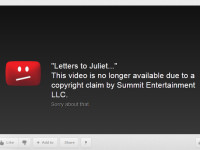The Trouble with the TPP series concludes the first week with a look at how the TPP treats the interests of rights holders and users completely differently (prior posts include Day 1: US Blocks Balancing Provisions, Day 2: Locking in Digital Locks, Day 3: Copyright Term Extension, Day 4: Copyright Notice and Takedown Rules). I noted in the discussion on Internet providers that the most telling provision comes at the very end, where the parties recognize the importance of taking into account the impacts on rights holders and Internet providers. Internet users and the general public do not merit a mention as their interests do not seem to count for the purposes of a notice-and-takedown system for copyright works on the Internet.
The absence of users in the Internet provider section is not an anomaly. Throughout the TPP IP chapter, there are two distinct approaches. Where rights holders interests are concerned, the requirements are typically mandatory (ie. “shall”). Where the issue involves user rights or access, the requirements are not requirements, but rather non-mandated provisions (ie. “may”). For example, consider the international IP treaty obligations in the TPP. Article 18.7 identifies nine international IP treaties and protocols that are all requirements for TPP members (Patent Cooperation Treaty, Paris Convention, Berne Convention, Madrid Protocol, Budapest Treaty, Singapore Treaty, UPOV 1991, WCT, and WPPT). What about the Marrakesh Treaty to facilitate access to published works for the blind and visually impaired? It is relegated to a footnote with no obligation to implement:











